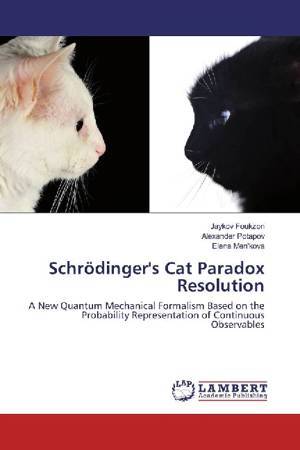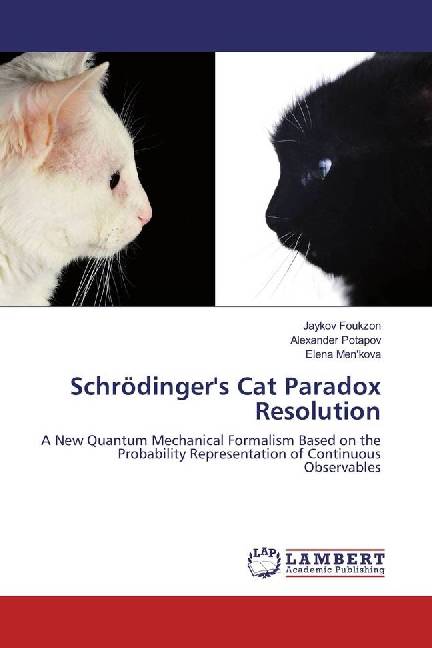
- Afhalen na 1 uur in een winkel met voorraad
- Gratis thuislevering in België vanaf € 30
- Ruim aanbod met 7 miljoen producten
- Afhalen na 1 uur in een winkel met voorraad
- Gratis thuislevering in België vanaf € 30
- Ruim aanbod met 7 miljoen producten
Zoeken
Schrödinger's Cat Paradox Resolution
A New Quantum Mechanical Formalism Based on the Probability Representation of Continuous Observables
Jaykov Foukzon, Alexander Potapov
Paperback | Engels
€ 23,95
+ 47 punten
Omschrijving
In his famous thought experiment, Schrôdinger(1935) imagined a cat that measures the value of a quantum mechanical observable with its life. Since Schrödinger's time,no any interpretations or modifications of quantum mechanics have been proposed which gives clear unambiguous answers to the questions posed by Schrödinger's cat of how long superpositions last and when (or whether) they collapse?In this book appropriate modification of quantum mechanics is proposed.We claim that canonical interpretation of the wave function = 1 1+ 2 2 is correct only when the wave function supports 1 and 2 essentially overlap. When these ones have separated supports we claim that canonical interpretation of the wave function is no longer valid for a such cat state.Possible solution of the Schrödinger's cat paradox is considered. We pointed out that the collapsed state of the cat always shows definite and predictable outcomes even if the cat also consists of a superposition: cat= 1 alive cat+ 2 death cat.Using new quantum mechanical formalism the EPRB-paradox is considered.We find that the EPRB-paradox can be resolved by nonprincipal and convenient relaxing of the Einstein's locality principle.
Specificaties
Betrokkenen
- Auteur(s):
- Uitgeverij:
Inhoud
- Aantal bladzijden:
- 84
- Taal:
- Engels
Eigenschappen
- Productcode (EAN):
- 9783659935435
- Uitvoering:
- Paperback
- Afmetingen:
- 150 mm x 220 mm

Alleen bij Standaard Boekhandel
+ 47 punten op je klantenkaart van Standaard Boekhandel
Beoordelingen
We publiceren alleen reviews die voldoen aan de voorwaarden voor reviews. Bekijk onze voorwaarden voor reviews.











